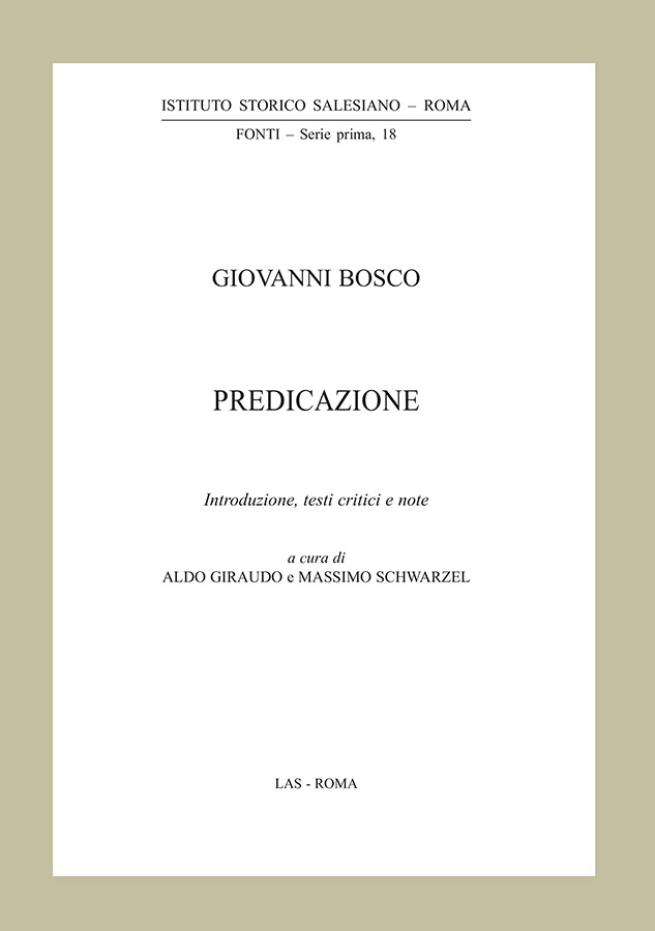This documentation, which reflects different periods of the life and work of the saintly educator, as a whole is modest in its amount, when compared to the number of his sermons and speeches reproduced, summed up or mentioned in the Biographical Memories, or if compared to the vastness of similar materials left by his successors: Michael Rua and Paul Albera.
The reasons for this lack of documentation can be various, not least the fact, ascertained by witnesses and biographers, of the ease with which he knew how to improvise speeches, not only in the domestic sphere. However, despite the paucity and the simplicity of doctrinal arguments, these texts are historically interesting as a document of his sensitivities and of a personal communicative style, as well as a mirror of mental frameworks and doctrinal schemes shared by much of the Catholic world in a precise historical-religious context.
They also testify to a constant evolution of Don Bosco's vision and language, connected to the gradual broadening of the horizons, human relationships and experiences of the saintly educator, vitally inserted in a century of significant cultural and linguistic transformations. From panegyrics prepared on the occasion of village patron saint festivities, modeled on archaic styles, we move on to the collection of popular instructions with a rigorous approach and fervour designed for small communities, to arrive at, from the 1860s onwards, more complex discourses that reflect personal events and decidedly changed contexts.
The critical edition of the manuscripts revealed an acute concern for the care of textuality, for the choice of suitable words to express his thinking in relation to his listeners. Each text was subject to the patient work of revision and syntactic or lexical simplification, in order to give it clear, lively, effective exposure.
The volume contains the critical edition of forty-two discourses distributed across five sections: I. Pangyrics in Piedmontese by John Bosco seminarian (4 texts); II. Instructions and spiritual exercises for the people (21 texts, composed mainly between 1841 and 1843); III. Marian preaching (8 texts); IV. Panegyrics in Italian (5 texts); V. Speeches for various circumstances (4 texts).


